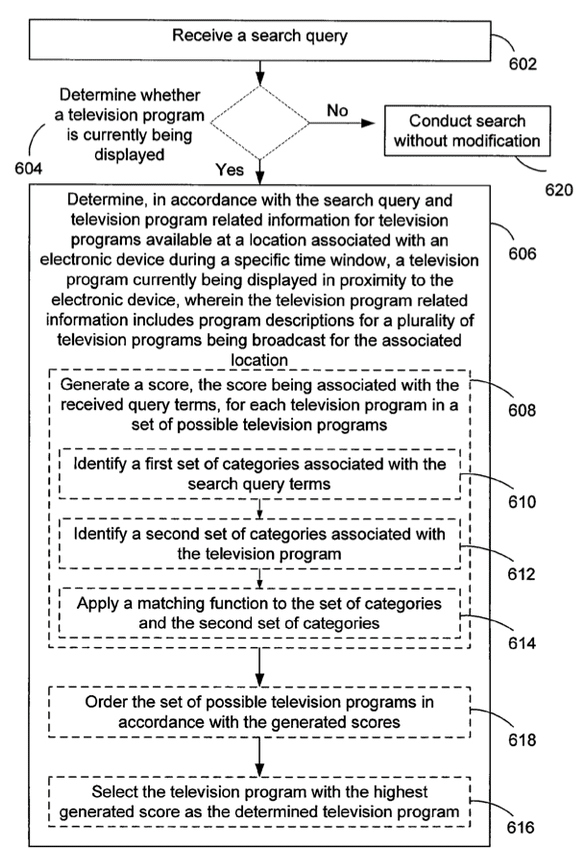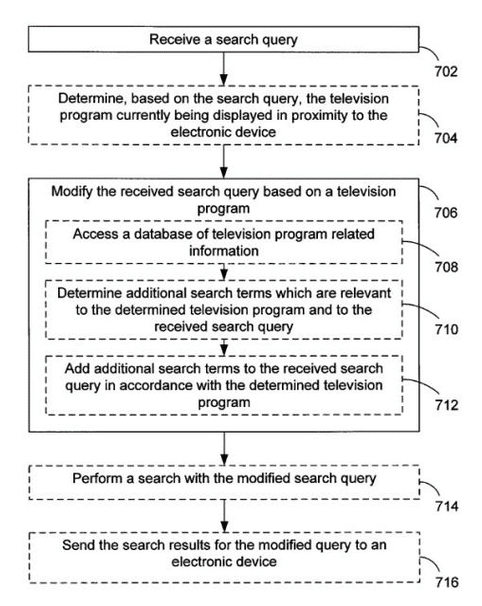No one can deny that our relationship with Google has been a love / hate one, sometimes bordering on a total hate / hate rapport—because sometimes it feels as if Google is testing our patience right alongside our ability to adapt!
It can be downright frustrating, especially for those of us running online businesses, trying our best to do all of the right things in a concentrated effort to land our brand smack in the middle of the top results on those coveted search engine results pages.
Therefore, it is not too surprising to hear about Google testing new ranking signals, but the latest news is a little unexpected: Google wants to use what’s on TV as a ranking signal.
Google’s New Patent
According to a recent report by Matt Southern of Search Engine Journal, Google has landed a patent indicating that they’re actively working on a method to leverage what’s airing on TV in your local area as a ranking signal. Say what? How is that supposed to work? It sounds a little crazy, but if you think about it, so did mobile devices about 10 years ago! So, instead of frowning and thinking it’s just another piece of science fiction, let’s take a more educated look at the idea itself.
The Idea Behind the Idea
In a recent article by Search Engine Land, the consensus is that Google is attempting to provide relevant search results by detecting the TV shows you’re viewing. Farfetched? Not really. The article goes on to state that Google is gearing up to use a “variety of signals” to govern how to rank search results. The “variety” is said to include:
- Linking patterns on the Web
- The user’s geographic location, search history, etc.
And it looks like what you’re watching on TV is about to become the next big local factor. Now, this doesn’t mean Google is turning into Big Brother, watching your every move in a huge invasion of privacy, and then handing you the most relevant search results based on a load of personal information. On the contrary, they are taking advantage of pure human nature.
The Psychology behind the Ranking Signal
When’s the last time you grabbed your Smartphone or device while watching television and looked something up related to the content you were watching? I got to thinking about this, and it occurred to me that I do this a lot more than I realize. I am so accustomed to having my Smartphone right beside me that I don’t even stop to think about how many times I grab it and search for something based on a television show, movie, or commercial that’s playing on my television. If I had to guess, I probably do this at least twice during prime time. What about you?
Here’s something else I contemplated: How often I conduct an Internet search based on what I’m watching and hit a brick wall. For example, back when I used to watch Shark Tank on a regular basis, it wasn’t uncommon for me to search the Internet for what I saw on the entrepreneur-geared show that intrigued me. I would see a company or product that I wanted to learn some more about. I’d grab my phone, Google it, and stare at the results wondering what on earth I was looking at.
In this particular instance, it would have been nice to have been greeted by relevant results. Sometimes the business I was trying to find wasn’t all that well placed on my search results simply because their SEO wasn’t super intense. Regardless of exactly why they didn’t pop on a search result, it would have been incredible if this patent had been active and Google had been using television viewing as a search signal. It just might have made my search for more information a little more productive, not to mention accurate. And I’m sure other businesses who wanted to buy a product they saw on the show would have appreciated a quick means of searching what they were watching and getting an accurate (not to mention relevant) return on their search engine results.
According to WebPro News, Google filed the patent in 2011. Although it was just granted this week, it is a fair assumption that Google’s been dabbling with implementation ideas surrounding this concept for a while. WebPro News provided the following breakdown of how this signal might work:


What Does This Mean To You?
That’s the big question, isn’t it? Whenever Google starts moving towards the application of a new ranking signal, we all want to know what it means for us, and we want to know as soon as humanly possible so we can prepare before implementation goes live.
According to WebPro News, Google has already been “listening in” to your TV from your mobile device via the “Listen to TV” feature, which was launched in 2013. It is certainly possible that TV viewing could become a rather significant factor of how Google delivers results to users for certain types of queries. The technology titan is already capable of monitoring user’s TV viewing preferences through Google TV, an application that can be seamlessly integrated with your current television. Google TV provides quick and easy access to your favorites on Google Play, YouTube, and Chrome.
However, it’s also noteworthy to keep in mind that just because Google currently holds the patent, it does not mean that they will actually use the process for search rankings. It’s too early to tell exactly what the approval of this patent will mean for the future of search engine results. But one thing is for sure: It makes you stop and think about what the future of SEO could hold.
The Effect on Content
Content is quickly becoming the future of search engine optimization, which for most of us isn’t incredibly surprising. High quality, relevant, and engaging content has been at the heart of awesome websites since the dawn of the Internet. It’s been the tested and true method of raising search ranking without dabbling in questionable tactics known as black hat SEO. Therefore, if television viewing is about to become a significant search ranking factor, it stands to reason that our content will somehow need to reflect local television.
Truth be told, it’s too early to predict exactly how this new ranking signal will affect things like content marketing, and in the end our online content.
What we could see is a new avenue of sending out strong ranking signals by tying in local television shows and trends with our business.
For example, over the past few months we’ve been rolling out blogs with the tag “Great Copywriting in Action.” Several of these pieces have talked about valuable lessons those of us in the content industry (and even us business owners seeking to expand and improve our content) can learn from various television shows, movies, plays, books, etc. Spinning pieces like this toward popular television shows airing in the locale of your target audience just might become a means of sending off a ranking signal that will get you seen when a user conducts a search that relates to that television show.
At the end of the day, it’s highly likely that should television viewing become a strong ranking signal, it will become increasingly important to learn even more about your target audience. What television shows do they favor and why? How can your brand or business become relevant to their television viewing preferences, and is it feasible to build some content around local television viewing trends?
Southern’s article in SEJ makes the prediction that using television viewing as a ranking signal has the potential to change our TV viewing experience dramatically. Imagine asking Google about something you’re watching on television, and it’s able to return accurate results by combining your location- and time-specific information. It’s a pretty radical and amazing concept. A concept that would be pretty cool if ultimately implemented.
A Challenge on the Horizon
You can depend on the simple fact that there’s one aspect of content this news won’t eventually affect, and that’s the production and publication of high quality, relevant, and engaging content. This basic staple of SEO has proven over the years that it isn’t going anywhere.
With the patent being so freshly approved, there’s no solid indicator of when or how we’ll see changes in the SERPs. The idea certainly brings into question how relevancy will tie in. Regardless of just how this new signal will affect content, one thing will remain certain: Relevancy will likely still be crucial, and it will become a challenge. We’re just going to have to get more imaginative. It just might be the next big challenge in content, finding creative ways to tie your brand or business into popular, local television watching habits.
What do you think of this new ranking signal? How do you think it could eventually impact both content and search engine optimization techniques?
